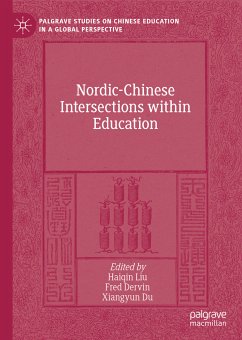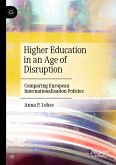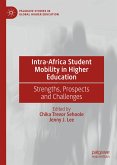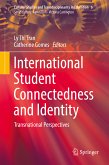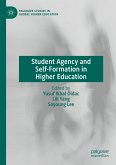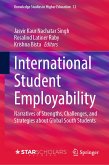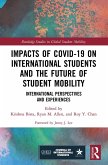'This fascinating book puts a cat among the pigeons in the global field of education. The authors make a convincing case for us to reevaluate the way two different education utopias are perceived and represented in the world. Using a method that is critical of 'false comparativism', the book introduces a wealth of studies that force us to abandon our hierarchical perceptions of Chinese and Nordic education.' -Mei Yuan, Minzu University of China, China
This book examines how the two educational systems of China and the Nordic countries intersect. Over the past decade, there has been increased growth and interaction between China and the Nordic countries due to both government encouragement and academic curiosity. This book rejects a simplistic approach that presents both spaces as culturally uniform, confronting 'East' and 'West' entities, and suggests a comparative and contrastive approach that is critical and reflexive in both theory and methodology. This does not solely concentrate on difference, but emphasises similarities, including studies on philosophical, conceptual and methodological issues. This nuanced edited collection will appeal to students and scholars of Nordic and Chinese education as well as globalisation and interculturality.
This book examines how the two educational systems of China and the Nordic countries intersect. Over the past decade, there has been increased growth and interaction between China and the Nordic countries due to both government encouragement and academic curiosity. This book rejects a simplistic approach that presents both spaces as culturally uniform, confronting 'East' and 'West' entities, and suggests a comparative and contrastive approach that is critical and reflexive in both theory and methodology. This does not solely concentrate on difference, but emphasises similarities, including studies on philosophical, conceptual and methodological issues. This nuanced edited collection will appeal to students and scholars of Nordic and Chinese education as well as globalisation and interculturality.
Haiqin Liu is Researcher at the Faculty of Educational Sciences of the University of Helsinki, Finland. Her research interests include multilingual education, interculturality and international teacher education.
Fred Dervin is Professor of Multicultural Education at the University of Helsinki, Finland. He specializes in intercultural education, the sociology of multiculturalism and academic mobility.
Xiangyun Du is Professor at the College of Education, Qatar University, Qatar, and Aalborg UNESCO Centre for Problem Based Learning in Engineering Science and Sustainability, Aalborg University, Denmark. Her main research interests include pedagogical development, particularly problem-based and project-based learning methods.
Dieser Download kann aus rechtlichen Gründen nur mit Rechnungsadresse in A, B, BG, CY, CZ, D, DK, EW, E, FIN, F, GR, HR, H, IRL, I, LT, L, LR, M, NL, PL, P, R, S, SLO, SK ausgeliefert werden.
Es gelten unsere Allgemeinen Geschäftsbedingungen: www.buecher.de/agb
Impressum
www.buecher.de ist ein Internetauftritt der buecher.de internetstores GmbH
Geschäftsführung: Monica Sawhney | Roland Kölbl | Günter Hilger
Sitz der Gesellschaft: Batheyer Straße 115 - 117, 58099 Hagen
Postanschrift: Bürgermeister-Wegele-Str. 12, 86167 Augsburg
Amtsgericht Hagen HRB 13257
Steuernummer: 321/5800/1497
USt-IdNr: DE450055826
Bitte wählen Sie Ihr Anliegen aus.
Rechnungen
Retourenschein anfordern
Bestellstatus
Storno

